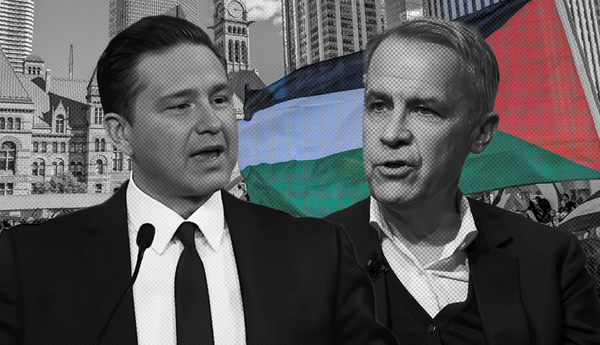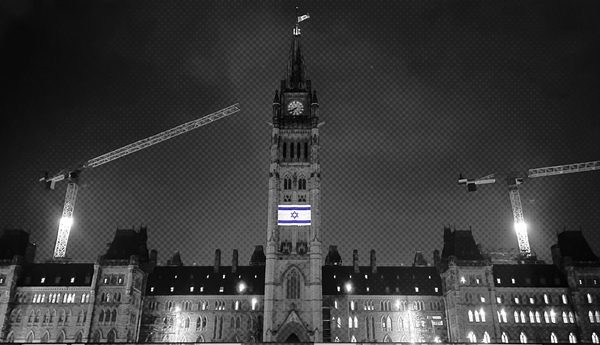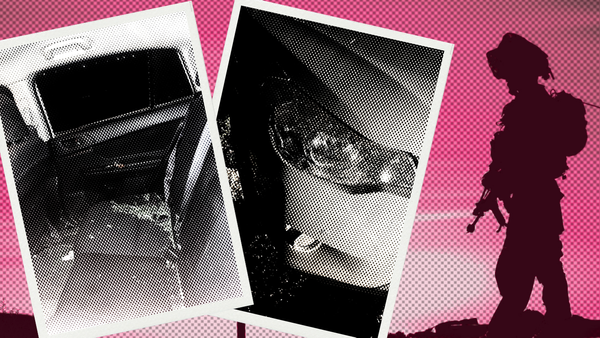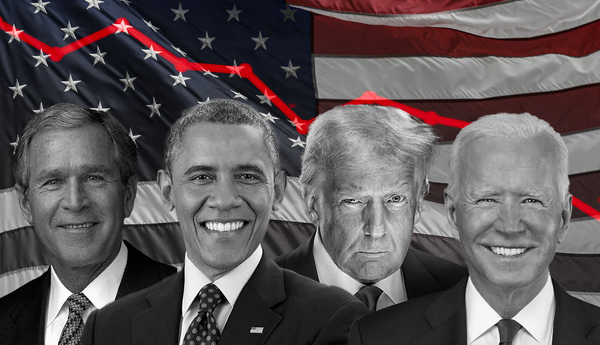On January 28, United States President Donald Trump and Israeli Prime Minister Benjamin Netanyahu released their awaited “Deal of the Century,” co-authored by U.S senior advisor Jared Kushner, whose qualification includes reading a hefty 25 books on Israel/Palestine.
The timing was opportune for both Trump, who was in the midst of his impeachment trial, and Netanyahu, who is facing bribery and corruption charges as he heads into elections in March. The plan is a clear attempt to keep Netanyahu in power, as he often takes measures to harm Palestinians when elections are nearby.
Palestinian leadership wasn’t consulted when writing the plan, and were excluded from negotiations. As such, it’s no surprise the plan is a slap in the face to Palestinians, from the occupation to the diaspora.
To start, the plan includes annexation of Palestinian land in the West Bank and the Jordan Valley. It also aims to introduce the two-state solution in an unrecognizable format, proposing policing even of land that would be part of a future Palestinian state.
The plan will also allow the separation wall, which divides hundreds of Palestinian villages and family members from seeing each other, to remain intact to match the plan’s new borders.
The plan also outright rejects the right of return for Palestinian refugees expelled in 1948. It only gives rights to those registered with the United Nations Relief and Works Agency for Palestine Refugees, who make up a fraction of the complete number.
The plan disregards the Palestinian claim for East Jerusalem as the capital, and provides alternative cities that have no historical or holy meaning.
The plan also forces Palestinian leadership to suspend the International Criminal Court’s probe on Israeli human rights violations.
The plan doesn’t mention removing the land, air and sea blockade on Gaza, the world’s largest open air prison, which has restricted movement and destroyed the economy.
A four year settlement freeze is also included, yet the plan doesn’t specify any solution to current settlements that demolished Palestinian homes.
As a whole, the plan is the equivalent of two people giving away pieces of land you own without consulting you, and then asking why you’re not happy with the outcome.
Despite all of the plan’s serious flaws, the Canadian government has been noticeably quiet. On January 28, Foreign Minister François-Philippe Champagne posted a meek Twitter statement, noting the government will examine the plan’s details, and “support meaningful dialogue” between the parties in negotiation for a two-state solution.
Prime Minister Justin Trudeau has kept silent on social media and in public. The only time he’s addressed the plan thus far was on February 3 in the House of Commons, when NDP Member of Parliament Alexandre Boulerice asked him, “When will the government denounce Donald Trump’s new policy?”
Trudeau gave a hollow reply, claiming, “We are committed to a two-state solution negotiated directly by the two parties involved. That takes a safe and democratic Israel and a safe and democratic Palestine.” Trudeau provided no condemnation of the fact that this plan lacked input from Palestinians and attempts to make apartheid a legal reality.
The lack of proper responses from government officials shows just how little Palestinian lives mean to Canada. This isn’t new, however, and in fact has been the case for decades.
Canada has a lengthy relationship with Israel, which has consistently harmed Palestinians. Canada was one of the very first countries to establish formal diplomatic relations with Israel. Since then, Canada has been a close ally to Israel, lauding their every move.
In 1962, Prime Minister John Diefenbaker called Zionism in Canada “a partnership among Jews and fellowship with history.”
In 1989, when Palestinians took part in what has since been called the first Intifada, Canada was quick to support Israel. Prime Minister Brian Mulroney stated, “For Canadians, Israel is not simply a place on the map. Israel is a tribute to the deep spiritual beliefs and the unfailing personal courage of a remarkable people. Israel is a monument to the indomitable spirit of man.”
Canada and Israel then signed a free trade agreement in 1997, allowing for the free flow of products created from the exploitation on Palestinian land. Israel was only the third country to enjoy such a relationship with Canada.
Under Prime Minister Paul Martin’s Liberal government in 2005, voting at the UN changed in favour of Israel, due to lobbying from Zionist organizations. Since then, each government, Liberal or Conservative, has voted against Palestine in most Middle East resolutions at the UN General Assembly. In 2012, then-Prime Minister Stephen Harper voted against Palestinian status as a non-member observer state.
The sole exception to this voting record was a pro-Palestine UN resolution last November. Trudeau claimed the reason for this vote was “to reiterate [Canada’s] commitment to the two-state solution when its prospects appear increasingly under threat.” This came after the U.S. stated Israeli settlements don’t violate international law. Yet the vote wasn’t out of genuine concern for Palestine, but rather a policy ploy to keep Canada’s status within the UN, considering their isolation in the past as a high number of members voted in favour of motions they opposed.
Beyond this poor voting record, the Canadian government has made efforts to suppress Palestinian activism domestically, focusing on BDS in particular. In 2016, Trudeau passed an anti-BDS motion condemning Canadian organizations and individuals that promote the movement. Before that, Harper threatened to charge BDS supporters with “hate crimes.”
Canada effectively gains nothing from Israel’s occupation, yet is happy to support it every step of the way. This is despite the fact that Canada has a Palestinian disapora of more than 44,000, who are actively engaged in helping people back home.
It’s rather humiliating to be Palestinian in Canada, as you’re used as a bargaining chip for foreign actors, and your identity is often politicized, no matter the context.
Living in Canada has been distressing at times, as the government’s anti-Palestinian narrative has made me feel non-existent. While I’ve never seen Palestine, it’s a home I’ve longed for, that I feel connected to at my core, but which has been marked by occupation and destruction.
Canada needs to take part in striving for justice, and the first step is condemning sham peace plans that will set Palestinians back.
Canada must re-affirm its pledge to human rights by encouraging Trump and Netanyahu to consult with Palestinian leadership and push for Palestinian involvement in drafting a new plan.






